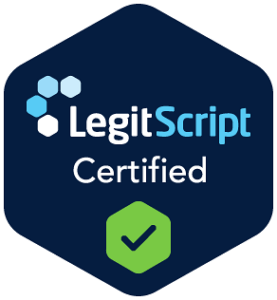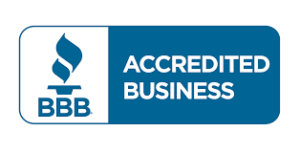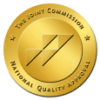Trauma therapy in Tennessee is often part of addiction recovery for a simple reason: a lot of people are not only trying to stop using. They are trying to calm a nervous system that has been stuck in survival mode for a long time.
Trauma can show up as constant anxiety, sleep problems, irritability, numbness, panic, or feeling on edge all the time. [1] Alcohol and drugs can feel like relief at first because they quiet the noise quickly.
Over time, that coping strategy can turn into dependence, and the original trauma symptoms usually get louder, not softer.
That is why trauma therapy Tennessee programs that are connected to addiction care tend to focus on both issues together. Trauma and addiction therapy in Tennessee isn’t about forcing someone to relive the worst moments of their life. Done well, it starts with safety and stabilization.
It helps people understand what trauma is doing to their body and brain, build coping skills that actually work in real life, and reduce the triggers that drive cravings and relapse. Then, when the timing is right, deeper trauma processing can happen in a way that is paced and clinically appropriate.
This page breaks down what trauma therapy looks like in addiction recovery, how trauma treatment in Tennessee typically works, and why trauma-informed therapy in Tennessee matters when substance use is involved.
It also explains what people mean when they search for a trauma treatment center in Tennessee, including support for PTSD treatment in Tennessee and integrated care for co-occurring trauma and substance abuse in Tennessee.
If someone is in immediate danger or feels unsafe, emergency help is the right move first, then treatment planning can follow.

What Is Trauma Therapy in Addiction Recovery?
Trauma is not just a single major event. It can be a single incident or ongoing experiences that taught your body the world is not safe. People often think trauma has to be extreme to “count,” but clinicians usually focus less on the label and more on the impact.
Trauma can leave the nervous system stuck on high alert. [2]
That can look like being jumpy, scanning rooms, feeling tense for no clear reason, having a short fuse, or feeling emotionally shut down. It can also show up as avoidance, not going places, not answering calls, not sleeping, not letting anyone get close, because your brain is trying to prevent more pain.
When substances enter the picture, they can become a fast way to control those sensations. Alcohol might take the edge off at night. Pills might help someone sleep or feel calm. Stimulants might help someone feel powerful instead of scared. The problem is that the brain learns this pattern quickly, and the body builds tolerance.
Then the person needs more of the substance to get the same effect, and withdrawal brings back anxiety, insomnia, and agitation even harder.
This is one reason trauma treatment addiction in Tennessee is so important. If the trauma-driven pattern does not change, relapse prevention becomes much harder.
PTSD basics, signs, and when PTSD treatment matters
PTSD is a specific trauma-related condition that can develop after experiencing or witnessing something terrifying, dangerous, or deeply violating.[3] Not everyone who has trauma has PTSD, but many people have PTSD-like symptoms.
PTSD is often associated with intrusive memories or nightmares, avoidance of reminders, negative shifts in mood and thinking, and a body that stays keyed up, as if it is bracing for impact.
People looking for PTSD therapy in Tennessee are usually trying to get out of a loop that feels impossible to control. They might feel fine for a few hours, then a sound, smell, date, argument, or random thought flips a switch.
Suddenly, they are flooded, numb, panicky, or angry, and substance use becomes the quickest way to stop the experience.
When PTSD and addiction overlap, PTSD addiction treatment in Tennessee needs to address both the trauma symptoms and the substance use patterns, because each one can trigger the other.
Trauma counseling versus trauma therapy: What people mean when they search
People use the terms trauma counseling Tennessee and trauma therapy Tennessee interchangeably, but they can mean slightly different things depending on the provider.
Trauma counseling often refers to supportive care that helps someone stabilize and function. It might include learning grounding skills, building emotional regulation, improving sleep routines, and understanding triggers.
This can be a critical step for someone who is not ready for deeper processing, especially when substance use is still active or early recovery is still shaky.
Trauma therapy usually implies a more structured clinical approach to reducing trauma symptoms over time. That might include skills-based work plus a specific trauma treatment model that helps the brain and body process traumatic memories differently. In addiction recovery, trauma therapy rehab in Tennessee is often staged.
Many people start with stabilization and coping skills, then move into deeper work once they are medically stable, sleeping better, and able to stay present without using substances to escape.
If someone has both trauma symptoms and substance use, trauma counseling for substance use in Tennessee should also include relapse prevention planning.
That means identifying the situations that spike symptoms, planning how to respond, and building a realistic, not aspirational, support system.
Trauma-informed therapy: what it is and what it’s not
Trauma-informed therapy in Tennessee is not a single technique. It is an approach to care. It means the clinician assumes trauma may be part of the story, and they work in ways that reduce the chance of making symptoms worse.
That includes moving at a pace the person can handle, explaining what is happening and why, and prioritizing choice and consent.
In practical terms, trauma-informed care often looks like this: the clinician focuses on safety first, asks permission before going deeper, helps clients learn grounding skills early, and avoids pushing someone into details before they have the tools to cope.
This is especially important for people dealing with co-occurring trauma and substance abuse in Tennessee, because early recovery can be emotionally raw, and intense trauma work too soon can increase cravings, shutdown, or relapse risk.
When trauma and substance use are treated together, the goal is not perfection. The goal is steadier days, fewer crisis moments, less shame, and a plan that holds up when triggers show up.
That is the core of trauma and addiction therapy in Tennessee, and it’s also what people are usually looking for when they search for PTSD treatment in Tennessee in the context of addiction recovery.
Trauma Therapy in Tennessee: How It Works
Trauma therapy in Tennessee can look different depending on a person’s history, symptoms, substance use patterns, and what level of structure they need to stay safe and stable. But most trauma treatment in Tennessee follows the same general arc. You start by getting grounded and medically stable.
Then you build skills that help you stay present without needing substances to shut your brain off. From there, if it makes sense clinically, you move into deeper trauma work that helps reduce PTSD symptoms and lowers relapse risk over time.
The most important thing to understand is that good trauma work is paced. If someone is dealing with co-occurring trauma and substance abuse in Tennessee, the first goal is not to dig into the worst memories right away.
The first goal is to help the body and brain feel safer so treatment is sustainable, not destabilizing.
Step one: Assessment and stabilization
Trauma therapy usually begins with a detailed assessment. This includes trauma history, current PTSD symptoms, sleep, panic, dissociation, depression, anxiety, and how substance use fits into the picture.
It also looks at practical factors that affect recovery, such as living situation, support system, legal stress, and which triggers show up most often.
Stabilization is often underestimated. It is where trauma counseling for substance use in Tennessee can make a big difference early on. This phase focuses on creating enough internal steadiness that a person can tolerate discomfort without escaping through alcohol or drugs.
That typically includes:
Building grounding skills for panic, flashbacks, and emotional flooding
Learning what triggers look like in real time, not just in theory
Developing routines that support sleep, appetite, and mood regulation
Practicing coping strategies that work when cravings hit
For many people, this is where trauma-informed therapy in Tennessee matters most. When care is trauma-informed, the process is collaborative and consent-based. The clinician explains what they are doing and why. The patient has choices. The work moves at a pace the nervous system can handle.
Integrated trauma treatment when addiction is in the picture
When trauma and addiction overlap, treatment has to address both at the same time. That is the core of trauma and addiction therapy in Tennessee. Otherwise, people end up stuck in a loop. Trauma symptoms drive cravings, cravings lead to use, use worsens sleep and mood, and the worsening symptoms make trauma feel even more unmanageable.
Trauma treatment addiction in Tennessee typically includes trauma-focused support plus an addiction recovery structure. [4] In practice, that means a person is learning coping skills for trauma triggers while also building relapse prevention skills that hold up when life gets stressful. This is also where PTSD addiction treatment in Tennessee is different from treating PTSD alone.
The care plan has to account for how substances have been used to manage symptoms, what situations tend to lead to use, and how to respond when trauma shows up unexpectedly.
A big part of integrated care is learning to separate the present from the past. Trauma can make the body react as if danger is happening right now, even when it is not. Substances can feel like the fastest way to turn off that reaction.
Trauma counseling in Tennessee in an addiction setting helps people build other ways to come down, so they are not relying on alcohol, pills, or drugs to regulate their nervous system.
Trauma therapy inpatient Tennessee: when more structure makes sense
Trauma therapy inpatient Tennessee can be a better fit when someone needs more structure, more accountability, and a safer environment to stabilize. This level of care tends to make sense when any of these are true:
Symptoms are severe enough that day-to-day functioning is falling apart
Relapse risk is high, especially during early recovery.
Triggers at home are constant, including unsafe relationships or unstable housing
Sleep is very disrupted, panic is frequent, or emotional shutdown is intense
There is a pattern of trying outpatient care and not being able to stay steady
Inpatient or residential settings can offer a more protected space to practice skills repeatedly, not just talk about them once a week. For people searching for trauma therapy rehab in Tennessee, this is often what they mean. They want trauma treatment and addiction treatment together, in a structured environment where they can focus fully on recovery.
Even in inpatient care, the pacing still matters. Early work often focuses on stabilization, coping skills, and building the capacity to tolerate feelings. Deeper trauma processing happens when a person is ready for it, not because the calendar says it is time.
Trauma therapy outpatient Tennessee: step down and real-life integration
Outpatient trauma therapy in Tennessee is often the next step once someone is more stable. Outpatient care can also be the starting point for medically stable people who have a safe living situation and can reliably attend treatment without constant exposure to triggers they cannot manage.
Outpatient trauma work has a different challenge: real life keeps happening. Triggers can show up between sessions. Stress at work, family conflict, and daily responsibilities don’t pause. That is why trauma treatment in Tennessee in an outpatient setting usually emphasizes planning and repetition. You learn skills in session, then practice them during the week, then troubleshoot what did and did not work.
Outpatient care is also where long-term recovery planning becomes more concrete. People often need a clear plan for handling anniversaries, family events, sleep disruptions, and the everyday stress that used to lead to using.
Common therapy methods used for trauma and PTSD
Trauma therapy is not one thing. Most effective trauma and PTSD care includes skills plus a structured approach to reducing symptoms over time.
Depending on the provider, a person may encounter methods such as EMDR, cognitive processing therapy, prolonged exposure, or other trauma-focused approaches. Many programs also use therapies that support emotion regulation and distress tolerance, which can be especially helpful in early recovery.
The point is not the label. The fact is whether the approach is paced, trauma-informed, and integrated with addiction recovery needs.
For someone dealing with PTSD treatment in Tennessee in the context of substance use, the best approach is the one that helps them stay stable, stay engaged in treatment, and reduce symptoms without increasing relapse risk.
What Are the Benefits of Trauma Therapy?
The benefits of trauma therapy in Tennessee go beyond feeling better emotionally. When trauma is part of the addiction story, trauma treatment can directly affect whether recovery lasts.
People often describe a shift from constantly reacting to life to gaining more control over their thoughts, bodies, and choices.
One of the biggest benefits of trauma and addiction therapy in Tennessee is that it targets the triggers that often drive relapse.
If someone has been using substances to sleep, to stop panic, to numb shame, or to quiet intrusive memories, stopping substance use alone can feel unbearable. Trauma treatment addiction Tennessee helps replace that survival strategy with skills that actually work.
Over time, many people build a stronger ability to ride out cravings without acting on them. They also get better at recognizing the early signs of a spiral, like sleep changes, isolation, irritability, and emotional shutdown.
That awareness gives them a chance to intervene earlier rather than wait until they are already in crisis.
Effective PTSD therapy in Tennessee can help reduce the intensity and frequency of trauma symptoms. [5] That can mean fewer nightmares, fewer intrusive thoughts, less hypervigilance, and less emotional flooding.
Some people notice that their nervous system feels less reactive in everyday situations. Others notice they are not as numb, and they can actually feel connected again without panic.
For people dealing with co-occurring trauma and substance abuse in Tennessee, reducing trauma symptoms can also make sobriety feel more realistic. When the brain isn’t constantly scanning for danger, it’s easier to focus, to sleep, and to stay engaged with treatment and support.
Trauma often reshapes how people relate to others. It can cause distrust, avoidance, control issues, people pleasing, anger, or shutdown. Trauma counseling in Tennessee can help someone understand those patterns and start changing them in practical ways. That can improve communication, reduce conflict, and make it easier to stay connected to supportive relationships.
Many people also experience improvements in daily functioning. That can look like better follow-through at work, more consistent routines, fewer panic spirals, and a clearer sense of what they need when stress hits.
When care is trauma-informed, people often feel safer in treatment, which increases the odds they stay engaged long enough to benefit. That is why trauma-informed therapy in Tennessee is not just a nice extra. It can shape outcomes.
For people searching for trauma therapy rehab in Tennessee because they have tried to quit before and couldn’t stay sober, the difference is often that trauma is finally being treated as part of the plan, not as a side issue.

Why Trauma Therapy Is Important
Trauma Therapy in Tennessee matters in addiction recovery because trauma doesn’t disappear when someone stops using. In many cases, the substance use started as an attempt to manage trauma symptoms.
Alcohol or drugs can quiet anxiety, help with sleep, shut down intrusive thoughts, or create a temporary sense of control. The relief is real, but it’s short-lived. Over time, tolerance builds, withdrawal symptoms intensify, and the nervous system becomes even more reactive. That is how a person can end up feeling worse after they stop using, even though they are doing the right thing.
This is where trauma treatment in Tennessee becomes a stability issue, not a luxury add-on. If the underlying trauma responses are not addressed, the same triggers that fueled substance use are still there. Stress, conflict, anniversaries, nightmares, and sudden body sensations can hit hard, and cravings can show up fast.
People dealing with PTSD treatment in Tennessee often describe it as living with a smoke alarm that goes off when there is no fire. When substances have been the main way to shut that alarm off, relapse risk stays high until someone learns different ways to regulate, ground, and feel safe.
Trauma and addiction therapy in Tennessee also matters because untreated trauma can keep people stuck in shame and avoidance. Shame fuels secrecy, and secrecy fuels relapse. Trauma counseling for substance use in Tennessee helps someone name what is happening without judgment, understand why their brain and body react the way they do, and build a plan for responding to triggers without using.
That is also why PTSD addiction treatment in Tennessee should be integrated when both conditions are present. PTSD symptoms can drive substance use, and substance use can worsen PTSD symptoms, especially sleep disruption, mood instability, and emotional numbing. Treating only one side often leaves the other side pulling the person back into the same cycle.
Finally, trauma-informed therapy in Tennessee can improve treatment engagement. Many people drop out of care when they feel pressured, misunderstood, or overwhelmed.
A trauma-informed approach prioritizes safety, choice, pacing, and collaboration, which makes it easier to stay in treatment long enough for the work to take effect.
For people dealing with co-occurring trauma and substance abuse in Tennessee, staying engaged is not a minor detail. It is one of the biggest predictors of whether recovery holds up when real life returns.
Who Should Consider Trauma Therapy in Tennessee?
You do not have to be able to point to one defining event to consider trauma therapy in Tennessee. Many people carry trauma responses without calling them trauma. If you notice that certain feelings or situations flip a switch in your body, like panic, rage, shutdown, numbness, or intense shame, and substance use has become the fastest way to cope, trauma counseling in Tennessee may be a practical next step.
This is especially true if you have tried to quit before and found yourself going back to alcohol or drugs when stress hit, sleep fell apart, or emotions felt too big to manage.
Trauma therapy is also worth considering if you recognize PTSD patterns. People looking for PTSD therapy in Tennessee often describe nightmares, intrusive memories, feeling constantly on edge, avoiding places or people that remind them of the past, or reacting strongly to reminders that seem small to others.
When those symptoms are paired with substance use, trauma and addiction therapy, Tennessee can help break the loop by treating both conditions together. Co-occurring trauma and substance abuse in Tennessee is common, and it’s not a personal failure. It’s what happens when survival strategies turn into dependence.
A more structured level of care best serves some people. Trauma therapy inpatient Tennessee can make sense if symptoms are severe, the relapse risk is high, or the home environment is not stable enough for early recovery. If a person needs consistent containment and support to practice coping skills, trauma therapy rehab in Tennessee can provide the structure that makes trauma work possible without constant re-exposure to triggers.
On the other hand, trauma therapy outpatient Tennessee may be appropriate if someone is medically stable, has a safe place to live, and can reliably attend sessions while practicing skills between appointments.
If you’re searching for a trauma treatment center in Tennessee because you feel like you can’t keep doing this alone, that’s already useful information.
The goal isn’t to force a deep dive into the past on day one. The goal is to build enough safety and stability that trauma symptoms stop running your decisions.
For many people, that is the turning point that makes recovery from both trauma and substance use feel sustainable.
If you’re searching for trauma therapy in Tennessee, you’re probably not looking for a vague promise or a one-size-fits-all approach.
You want care that understands how trauma and substance use feed each other, and you want a plan that actually holds up when symptoms spike. That is the core focus at Tennessee Detox Center, helping people address trauma symptoms while also building a recovery structure that supports long-term stability.
A lot of people look for trauma-informed therapy in Tennessee options because they have tried treatment before and felt rushed, judged, or pushed into talking about details before they were ready. Tennessee Detox Center takes a trauma-informed approach, which means safety and pacing come first. The goal is not to force disclosure.
The goal is to help you stabilize, build coping skills that work in real life, and reduce the patterns that keep pulling you back into use.
This matters even more for co-occurring trauma and substance abuse in Tennessee, and for people looking for PTSD treatment in Tennessee or PTSD therapy in Tennessee alongside addiction care. When trauma symptoms are driving cravings, sleep issues, panic, anger, or shutdown, you need more than surface-level support.
Trauma and addiction therapy in Tennessee should include a clear path for managing triggers, reducing relapse risk, and treating mental health symptoms in a way that supports sobriety.
Choosing a trauma treatment center in Tennessee is also about the level of care it provides. Some people need more structure at first, which is why trauma therapy inpatient Tennessee searches are so common. Others are ready for trauma therapy outpatient Tennessee and need support that fits around real-life responsibilities.
Tennessee Detox Center helps patients understand what level of care makes sense now and what the next step should be after early stabilization, so they are not left guessing or white-knuckling it.
If you are comparing options, such as the best trauma treatment center in Tennessee or top trauma therapy listings in Tennessee, focus on what the program actually does. Look for trauma-informed care, an integrated approach for trauma treatment and addiction in Tennessee, and a plan that addresses PTSD addiction treatment in Tennessee when both conditions are present.
That combination is what people usually mean when they search for the best trauma therapy for addiction in Tennessee or the best trauma-informed rehab in Tennessee.








Start Treatment at Tennessee Detox Center Today
If trauma symptoms and substance use are tied together for you, waiting until you feel “ready” usually turns into waiting until things get worse. The better move is to start with a confidential conversation and get clarity on what type of trauma treatment Tennessee makes sense right now.
Tennessee Detox Center can walk you through the first steps, including a clinical assessment, what trauma-informed care looks like in practice, and how trauma counseling for substance use in Tennessee fits into a realistic recovery plan.
If you are dealing with PTSD symptoms, cravings tied to triggers, or a pattern of relapsing when stress hits, it is worth asking about trauma and addiction therapy in Tennessee that treats both issues together.
If you or someone you love is in immediate danger or feels unable to stay safe, call 911 right away. If you need urgent emotional support, you can call or text 988 for the Suicide and Crisis Lifeline.
For everything else, reaching out for an assessment is a solid first step toward getting the right level of support, whether you need trauma therapy inpatient Tennessee structure or trauma therapy outpatient Tennessee planning.

How to Choose a Trauma Treatment Center in Tennessee
If you’re searching for a trauma treatment center in Tennessee, you will see a lot of bold claims. Phrases like “best trauma treatment center in Tennessee” and “top trauma therapy in Tennessee” show up everywhere, but they don’t tell you what care actually looks like day-to-day.
A better way to choose is to focus on fit, safety, and whether the program can treat trauma and substance use together without rushing the process.
A quality trauma therapy Tennessee program should be able to explain how they assess trauma symptoms, substance use patterns, and PTSD related concerns, then map those needs to a realistic plan.
If you are specifically looking for trauma therapy rehab Tennessee or PTSD addiction treatment Tennessee, the program should be clear about how they integrate trauma and addiction therapy Tennessee, not just offer them side by side.
Trauma-informed therapy in Tennessee is also something you can quickly screen for. Trauma-informed care is not a buzzword. It should show up in how staff communicate, how much choice you have, how pacing is handled, and whether the environment and clinical approach reduce shame and avoid retraumatization.
If you want an evidence-based overview of PTSD treatment approaches, the VA National Center for PTSD has a solid breakdown at ptsd.va.gov.
The level of care matters, too. Trauma therapy inpatient Tennessee may be a better fit when symptoms are severe, relapse risk is high, or the home environment is not stable enough for early recovery.
Trauma therapy in Tennessee can be effective when someone is medically stable, has a stable routine, and can practice skills consistently between sessions. A reputable provider should help you sort that out without automatically pushing you into the highest level.
If you are comparing “best trauma-informed rehab Tennessee” options, ask direct questions about what training staff have, how trauma therapy is paced, and what happens if symptoms intensify. You can also look for programs that understand the role of adversity and chronic stress in trauma responses.
Questions to ask before you commit
A program does not have to be perfect, but it should be transparent. On the first call, ask how they handle co-occurring trauma and substance abuse in Tennessee, how they support PTSD therapy in Tennessee when substance use is active, and how trauma treatment addiction in Tennessee is integrated into relapse prevention planning. [6] If the answers feel vague or if you feel pressured to share details before you feel safe, that is useful information.
If you need help finding treatment resources outside of a specific provider, findtreatment.gov is a practical starting point for locating services.
Frequently Asked Questions
Trauma therapy helps individuals address the emotional and psychological effects of trauma, which often underlie or exacerbate substance use disorders. At Tennessee Detox Center, trauma-informed care is integrated into addiction treatment to foster recovery and prevent relapse.
Trauma can drive substance misuse as a means of coping. In fact, nearly 46.4% of individuals with PTSD also meet criteria for a substance use disorder, highlighting why both must be addressed together.
Tennessee Detox Center offers evidence-based trauma therapies including:
- EMDR (Eye Movement Desensitization and Reprocessing)
- Trauma‑focused CBT (Cognitive Behavioral Therapy)
- And other modalities tailored to PTSD and trauma symptom
Trauma-informed therapy in Tennessee means care is delivered in ways that prioritize safety, choice, and pacing. You are not forced into sharing details before you are ready, and the clinician focuses on helping you build tools to stay grounded. It also means the team understands how trauma can affect trust, emotional regulation, and relapse risk. Trauma-informed care should feel respectful and collaborative. It should not feel like pressure.
Trauma therapy is embedded within Tennessee Detox Center’s broader addiction treatment, offering integrated care that addresses both trauma and substance use. This coordinated approach enhances outcomes and promotes long-term recovery.
Trauma or PTSD symptoms addressed may include:
- Invasive memories or nightmares
- Flashbacks
- Emotional numbing or mood shifts
- Hypervigilance
- Sleep disturbances
These can impact daily life significantly and are actively treated during trauma therapy
Initial assessment by clinicians to identify trauma history and PTSD symptoms
Personalized care plan, often including EMDR or CBT-based work
Holistic supports such as mindfulness, meditation, art therapy (as available within the broader residential program)
Clients are encouraged to complete a confidential insurance verification, as many plans—especially PPO/EPO—may cover both trauma therapy and addiction treatment at no cost to the client.
- Fully integrated trauma and addiction treatment under one roof.
- Luxury residential setting with private accommodations and upscale amenities.
- Highly trained clinical team offering evidence-based, trauma-focused therapy.
- Holistic elements like mindfulness, family therapy, and personalized care plans.
Trauma and addiction therapy in Tennessee often starts by naming a common pattern: substances can become a way to manage trauma symptoms like panic, insomnia, intrusive thoughts, anger, or emotional numbness. The relief can feel immediate, but it is temporary. Over time, tolerance and withdrawal intensify symptoms, which can increase cravings and relapse risk. Treating trauma and substance use together is often the most effective path when both are present.
PTSD treatment in Tennessee typically focuses on reducing symptoms like intrusive memories, nightmares, avoidance, mood changes, and feeling constantly on edge. You might need PTSD therapy in Tennessee if trauma symptoms are interfering with sleep, relationships, work, or sobriety, especially if triggers lead to cravings or using.
PTSD addiction treatment in Tennessee is integrated care that addresses both conditions, because each one can worsen the other. Treatment often includes stabilization, coping skills for triggers, relapse prevention planning, and trauma-focused therapy when appropriate. The pacing matters. Many people do better when they build emotional regulation tools first, then move into deeper trauma processing once they can stay present without relying on substances to escape.
Look for clarity about integrated care. The program should be able to explain how they assess trauma and substance use together, how they pace trauma work, and how they support relapse prevention when triggers hit. They should also be able to explain how they handle PTSD related symptoms in early recovery. If you are hearing vague claims about being the best trauma therapy for addiction in Tennessee, ask what that means in practice.
Get Family Support Now
Supporting Families Through Recovery
We understand addiction affects the whole family. Our comprehensive family program helps rebuild trust and restore relationships.
Weekly Family Therapy Sessions
Educational Workshops
Support Groups
Communication Skills Training


The information presented on Tennessee Detox Center website pages is intended solely for general educational and informational purposes related to addiction treatment, medical detoxification, rehabilitation services, and recovery support. This content is not intended to serve as medical advice, diagnosis, treatment planning, or a substitute for professional medical care. Substance use disorders are complex medical conditions that require individualized evaluation by qualified healthcare professionals.
Detoxification and rehabilitation needs vary widely based on the type of substance used, duration and frequency of use, physical health, mental health history, co-occurring disorders, and other individual factors. Information discussing detox timelines, withdrawal symptoms, medications, or treatment approaches is generalized and may not apply to every individual. Treatment decisions should always be made in consultation with licensed physicians, addiction specialists, or behavioral health providers.
If you or someone you love is experiencing a medical emergency — including but not limited to overdose, seizures, loss of consciousness, breathing difficulties, chest pain, suicidal thoughts, or violent behavior — call 911 immediately or go to the nearest emergency room. Tennessee Detox Center does not provide emergency medical services through this website, and no online content should delay urgent medical intervention.
Attempting to detox from alcohol, opioids, benzodiazepines, or other substances without medical supervision can be dangerous and potentially life-threatening. Withdrawal symptoms can be unpredictable and severe. Any detox-related information provided is for awareness only and should never replace professional medical oversight.
Information regarding insurance coverage, treatment costs, or payment options is provided for general guidance purposes only. Insurance benefits vary by carrier, policy, state regulations, and medical necessity determinations. Coverage information is not guaranteed and may change without notice. Tennessee Detox Center strongly encourages individuals to contact our admissions team directly to verify insurance benefits, eligibility, and coverage prior to making treatment decisions.
While reasonable efforts are made to ensure accuracy, Tennessee Detox Center makes no warranties regarding the completeness or timeliness of website content. Healthcare regulations, clinical standards, and insurance policies evolve regularly. Reliance on any information provided is at your own risk.
This website may include references or links to third-party resources for informational purposes. Such references do not constitute endorsements. Tennessee Detox Center is not responsible for external content, services, or policies.
Use of this website does not establish a provider-patient relationship. Contacting Tennessee Detox Center does not guarantee admission or treatment. Recovery outcomes vary and are never guaranteed.
The content available on Tennessee Detox Center pages is designed to provide educational information related to addiction, detoxification, rehabilitation, and recovery. This information should not be interpreted as professional medical advice or treatment recommendations.
Addiction treatment is highly individualized. Detox and rehab needs vary significantly based on health history, substance use patterns, and mental health considerations. Information provided is general and may not apply to all individuals.
If an emergency arises — such as overdose, severe withdrawal symptoms, or immediate danger — call 911 without delay. Online resources are not a substitute for emergency medical care.
Medical detox should always be conducted under professional supervision. Attempting detox without medical oversight can be dangerous.
Insurance information is provided as general guidance only. Coverage varies by plan and carrier. Tennessee Detox Center encourages all individuals to verify benefits directly with admissions staff.
Recovery outcomes are not guaranteed. Treatment effectiveness depends on many factors including engagement, clinical needs, and aftercare support.
References to external resources do not imply endorsement. Tennessee Detox Center is not responsible for third-party content.
Website use does not establish a provider-patient relationship.
Addiction Group. (n.d.). Tennessee drug and alcohol statistics. Retrieved July 28, 2025, from https://www.addictiongroup.org/tennessee/drug-statistics/
Substance Abuse and Mental Health Services Administration (SAMHSA). (2023). 2023 ICCPUD state report: Underage drinking prevention – Tennessee. U.S. Department of Health and Human Services. Retrieved from https://library.samhsa.gov/sites/default/files/tennessee-iccpud-state-report-2023.pdf
Tennessee Alcoholic Beverage Commission. (2024). Report to prevent underage drinking, drunk driving, and other harmful uses of alcohol (PC 961). State of Tennessee. Retrieved from https://www.tn.gov/content/dam/tn/abc-documents/abc-documents/PC-961-2024-Report-to-Prevent-Underage-Drinking-Drunk-driving-and-Other-Harmful-Uses-of-Alcohol.pdf
National Institute on Alcohol Abuse and Alcoholism (NIAAA). (2012). Alcohol withdrawal syndrome. In S. C. Merrill & B. S. Frances (Eds.), The management of alcohol use disorders: A practical guide for clinicians (NIH Publication No. 12–5191). National Center for Biotechnology Information. Retrieved from https://www.ncbi.nlm.nih.gov/books/NBK64119/

Medically Reviewed By:
Dr. Vahid Osman, M.D.
Board-Certified Psychiatrist and Addictionologist
Dr. Vahid Osman is a Board-Certified Psychiatrist and Addictionologist who has extensive experience in skillfully treating patients with mental illness, chemical dependency and developmental disorders. Dr. Osman has trained in Psychiatry in France and in Austin, Texas. Read more.

Clinically Reviewed By:
Josh Sprung, L.C.S.W.
Board Certified Clinical Social Worker
Joshua Sprung serves as a Clinical Reviewer at Tennessee Detox Center, bringing a wealth of expertise to ensure exceptional patient care. Read More
The Joint Commission – The Gold Seal of Approval® signifies that Tennessee Detox Center meets or exceeds rigorous performance standards in patient care, safety, and quality. It reflects a commitment to continuous improvement and clinical excellence.

LegitScript Certified – Confirms that Tennessee Detox Center operates in full compliance with laws and regulations, and meets high standards for transparency and accountability in addiction treatment marketing.

BBB Accredited – Demonstrates ethical business practices, commitment to customer satisfaction, and a trusted reputation within the community.
Psychology Today Verified – Indicates that Tennessee Detox Center is listed on Psychology Today, a trusted directory for verified mental health providers and treatment centers.
HIPAA Compliant – Ensures all patient health information (PHI) is protected and managed in accordance with strict federal privacy and data security standards.
ASAM Member – Tennessee Detox Center is a proud member of the American Society of Addiction Medicine (ASAM), reflecting a commitment to science-driven and evidence-based treatment standards.

Rutherford County Chamber of Commerce – Membership signifies active participation in the local community and support for regional growth and civic collaboration.
Addiction Group. (n.d.). Tennessee drug and alcohol statistics. https://www.addictiongroup.org/tennessee/drug-statistics/ Addiction Group
American Society of Addiction Medicine. (n.d.). ASAM membership. https://www.asam.org/membership Default
Better Business Bureau. (n.d.). BBB. https://www.bbb.org/ Better Business Bureau
LegitScript. (n.d.). Addiction treatment certification. https://www.legitscript.com/certification/addiction-treatment-certification/ LegitScript
Mayo Clinic. (n.d.). Post-traumatic stress disorder (PTSD): Symptoms and causes. https://www.mayoclinic.org/diseases-conditions/post-traumatic-stress-disorder/symptoms-causes/syc-20355967 Mayo Clinic
National Drug and Alcohol Research Centre (NDARC). (n.d.). Trauma and substance use [Factsheet]. https://ndarc.med.unsw.edu.au/sites/default/files/ndarc/resources/NDARC_TRAUMA_FINAL.pdf ndarc.med.unsw.edu.au
National Institute on Alcohol Abuse and Alcoholism. (2012). Alcohol withdrawal syndrome. In S. C. Merrill & B. S. Frances (Eds.), The management of alcohol use disorders: A practical guide for clinicians (NIH Publication No. 12-5191). https://www.ncbi.nlm.nih.gov/books/NBK64119/ Tennessee Detox Center
National Institute on Drug Abuse. (n.d.). Trauma and stress. https://nida.nih.gov/research-topics/trauma-and-stress National Institute on Drug Abuse
Psychology Today. (n.d.). Find treatment programs. https://www.psychologytoday.com/us/treatment-rehab Psychology Today
Rutherford County Chamber of Commerce. (n.d.). Member directory. https://www.rutherfordchamber.org/ Tennessee Detox Center
Substance Abuse and Mental Health Services Administration. (2023). 2023 ICCPUD state report: Underage drinking prevention – Tennessee. https://library.samhsa.gov/sites/default/files/tennessee-iccpud-state-report-2023.pdf SAMHSA Library
Substance Abuse and Mental Health Services Administration. (n.d.). SAMHSA (trauma-informed care frameworks and resources). https://www.samhsa.gov/ SAMHSA
Tennessee Alcoholic Beverage Commission. (2024). Report to prevent underage drinking, drunk driving, and other harmful uses of alcohol (PC 961). https://www.tn.gov/content/dam/tn/abc-documents/abc-documents/PC-961-2024-Report-to-Prevent-Underage-Drinking-Drunk-driving-and-Other-Harmful-Uses-of-Alcohol.pdf Tennessee State Government
U.S. Department of Health & Human Services. (n.d.). HIPAA. https://www.hhs.gov/hipaa/ HHS.gov
U.S. Department of Veterans Affairs, National Center for PTSD. (n.d.). Treatment of co-occurring PTSD and substance use disorder in VA. https://www.ptsd.va.gov/professional/treat/cooccurring/tx_sud_va.asp National Center for PTSD
U.S. Department of Veterans Affairs, National Center for PTSD. (2019). Behavioral interventions for comorbid PTSD and substance use disorder (PTSD Research Quarterly, 31[2]). https://www.ptsd.va.gov/publications/rq_docs/V31N2.pdf National Center for PTSD+1
The Joint Commission. (n.d.). About The Joint Commission. https://www.jointcommission.org/ Tennessee Detox Center
[1] https://www.ncbi.nlm.nih.gov/books/NBK594231/
[2] https://www.ncbi.nlm.nih.gov/books/NBK207191/
[3] https://www.nimh.nih.gov/health/topics/post-traumatic-stress-disorder-ptsd
[4] https://pmc.ncbi.nlm.nih.gov/articles/PMC3811127/

Medically Reviewed By:
Dr. Vahid Osman, M.D.
Board-Certified Psychiatrist and Addictionologist
Dr. Vahid Osman is a Board-Certified Psychiatrist and Addictionologist who has extensive experience in skillfully treating patients with mental illness, chemical dependency and developmental disorders. Dr. Osman has trained in Psychiatry in France and in Austin, Texas. Read more.

Clinically Reviewed By:
Josh Sprung, L.C.S.W.
Board Certified Clinical Social Worker
Joshua Sprung serves as a Clinical Reviewer at Tennessee Detox Center, bringing a wealth of expertise to ensure exceptional patient care. Read More
The Joint Commission – The Gold Seal of Approval® signifies that Tennessee Detox Center meets or exceeds rigorous performance standards in patient care, safety, and quality. It reflects a commitment to continuous improvement and clinical excellence.

LegitScript Certified – Confirms that Tennessee Detox Center operates in full compliance with laws and regulations, and meets high standards for transparency and accountability in addiction treatment marketing.

BBB Accredited – Demonstrates ethical business practices, commitment to customer satisfaction, and a trusted reputation within the community.
Psychology Today Verified – Indicates that Tennessee Detox Center is listed on Psychology Today, a trusted directory for verified mental health providers and treatment centers.
HIPAA Compliant – Ensures all patient health information (PHI) is protected and managed in accordance with strict federal privacy and data security standards.
ASAM Member – Tennessee Detox Center is a proud member of the American Society of Addiction Medicine (ASAM), reflecting a commitment to science-driven and evidence-based treatment standards.

Rutherford County Chamber of Commerce – Membership signifies active participation in the local community and support for regional growth and civic collaboration.
Holistic Detox Services
Compassionate Rehab Services
Evidence-Based Treatment
Insurances We Accept
- Verify your Insurance
- BCBS TN
- AETNA
- Cigna
- Anthem of KY
- Optum
- UMR
- Multiplan
Get Family Support Now
Supporting Families Through Recovery
We understand addiction affects the whole family. Our comprehensive family program helps rebuild trust and restore relationships.
Weekly Family Therapy Sessions
Educational Workshops
Support Groups
Communication Skills Training
Hear directly from those who have walked the path to recovery. Our patients’ stories highlight the compassionate care, effective programs, and life-changing support they’ve experienced. Let their journeys inspire you as you take your first steps toward healing.










Thank you all so much!




















The facility itself is clean, well-maintained, and equipped with all the necessary amenities to provide a serene and supportive environment.
What truly stands out is the personalized approach to care. The team developed a treatment plan tailored to my specific needs, incorporating both medical and holistic therapies. This comprehensive approach not only addressed my physical withdrawal symptoms but also supported my mental and emotional well-being.
The counselors and therapists offer a range of therapies that helped me understand the root causes of my addiction and develop effective coping strategies. Group therapy sessions provided a safe space to share experiences and gain insights from others on similar journeys.
Overall, my experience with this medical detox program was life-changing. The compassionate and skilled staff, combined with the personalized treatment approach, provided me with the foundation I needed for a successful recovery. I highly recommend this facility to anyone seeking a safe and supportive environment for detox and recovery.
But it's the people who make this place truly special. The staff, they've been there, they understand the struggle. No judgment, just support, encouragement, and a genuine desire to help you heal. They treated me like an old friend, even though I was just visiting for my buddy.
They've got a whole range of therapies to help you on your journey – individual counseling, group sessions, and even a fitness center to get you moving again. It's not just about detox. It's about rebuilding your life from the ground up.
My friend, the owner, he's living proof that this place works. He poured his heart into creating a haven for those seeking recovery, and his passion shines through in every detail.
So, if you're ready to take that first step, this is the place. Trust me, they'll walk beside you every step of the way.



